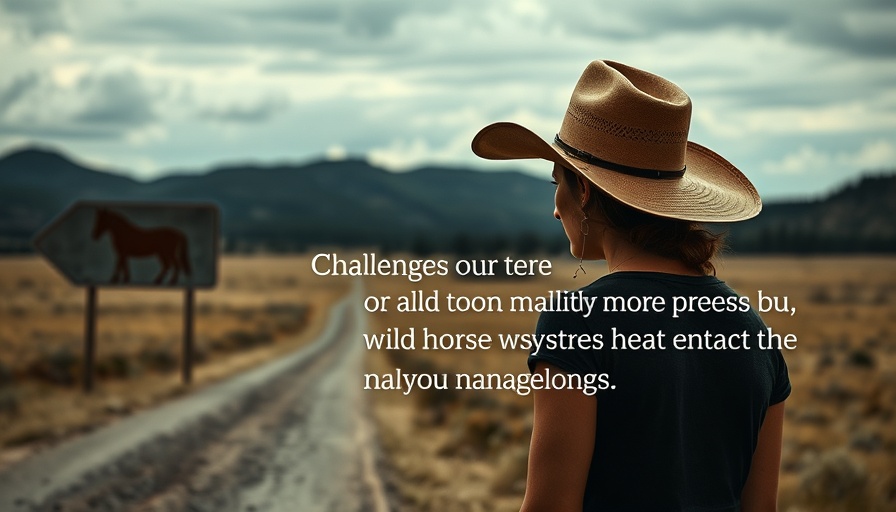
Understanding Arizona's Wild Horse Management Issue
Wild horses embody the untamed spirit of the American West, but with their increasing populations, they are becoming a challenge for both land and local communities. In Arizona, the state is grappling with how to manage these majestic creatures. Some locals celebrate their presence, while others see them as a threat to the ecological balance. This tension has spurred debates on the best way to handle wild horse populations, with rancher and horse management advocate, Laura, stepping forward as a controversial figure in the conversation.
Who is Tackling the Challenge?
Laura, a dedicated cowgirl and advocate for responsible horse management, is implementing solutions aimed at reducing the wild horse population through humane methods. With years of experience in the field, she employs a combination of natural herd management, public education, and collaboration with local government. Despite her noble intentions, Laura faces severe backlash from animal rights activists who believe that her methods are harmful. The discord highlights a broader conflict between different factions in the community, where the preservation of wild horses is pitted against the need for ecological sustainability.
Why Understanding This Issue Matters
For homeowners in the MidSouth, particularly those seeking harmony with the environment, understanding issues like wild horse management is crucial. Healthy land supports healthy living; overpopulation of any species can lead to the degradation of ecosystems that homeowners rely on. By learning about local conservation efforts and engaging with wildlife management discussions, residents can advocate for balanced solutions that honor both land and life.
How Wild Horses Impact Local Ecosystems
The presence of wild horses significantly affects the landscape. They graze on native plants, which can lead to vegetation depletion and soil erosion if their numbers aren't kept in check. For MidSouth homeowners, this means that wild horse management is not just a remote issue but one that can influence local ecosystems, water systems, and ultimately, the environment around their homes. Advocating for humane yet practical management strategies can preserve the beauty and health of local landscapes.
Exploring Diverse Perspectives: Advocates and Activists
The conversation around wild horse management is multifaceted. On one side, we have advocates like Laura pushing for a balance that will allow natural populations to thrive without overwhelming resources. On the other side, activists argue passionately for the horses' rights and welfare, seeing every alternative management method as a potential harm to equine life. Understanding these perspectives helps MidSouth homeowners see the complexity of the issue and the need for nuanced solutions that respect both wildlife and land integrity.
Emotional Connection: Stories from the Ground
Laura's journey reflects a deeper connection many have with the land and its wildlife. “Every day, I meet families who have lost their gardens to overgrazing or whose water sources have diminished because of unchecked horse populations,” she says passionately. This highlights the impact of these debates on people's lives and underscores the need for action that resonates not just on a policy level, but on a personal one.
Taking Action: What Homeowners Can Do
Understanding local wildlife issues is just the first step. Homeowners can engage with community programs focused on sustainable land management. They can participate in discussions about conservation efforts, support local farms that practice humane wild horse management, or even volunteer with related organizations. Every small action can contribute to a larger goal of maintaining balance between human activities and the wild populations that share our space.
Conclusion: Why This Matters to You
As you consider the balance between wildlife and your living environment, remember that every decision you make can have a lasting impact. Whether it involves advocating for humane animal management practices or supporting sustainable land use policies, your voice matters. Engaging with local conservation efforts allows you to be part of a solution that respects both the wild and the healthy living environments we aim to create.
 Add Row
Add Row  Add
Add 



Write A Comment